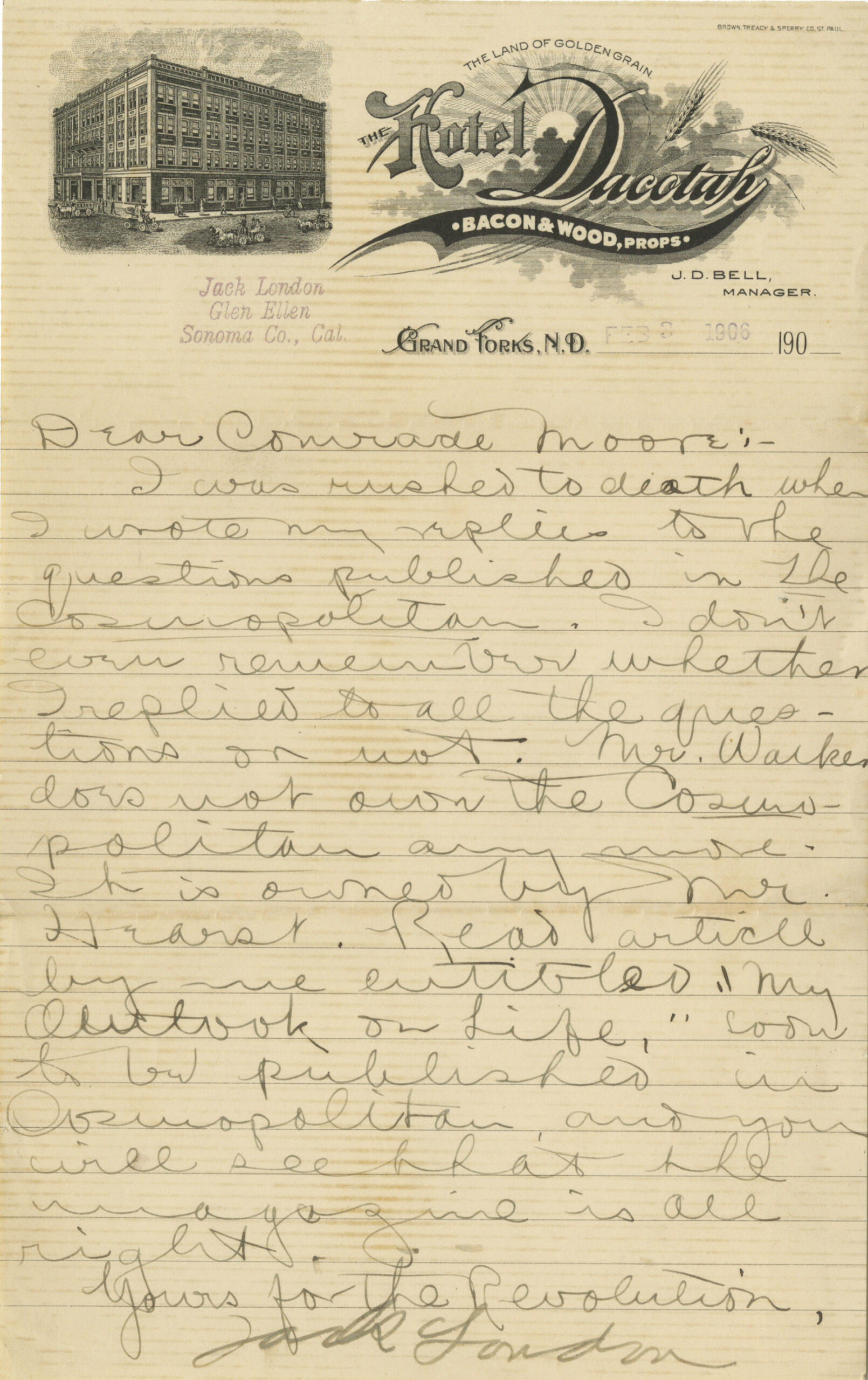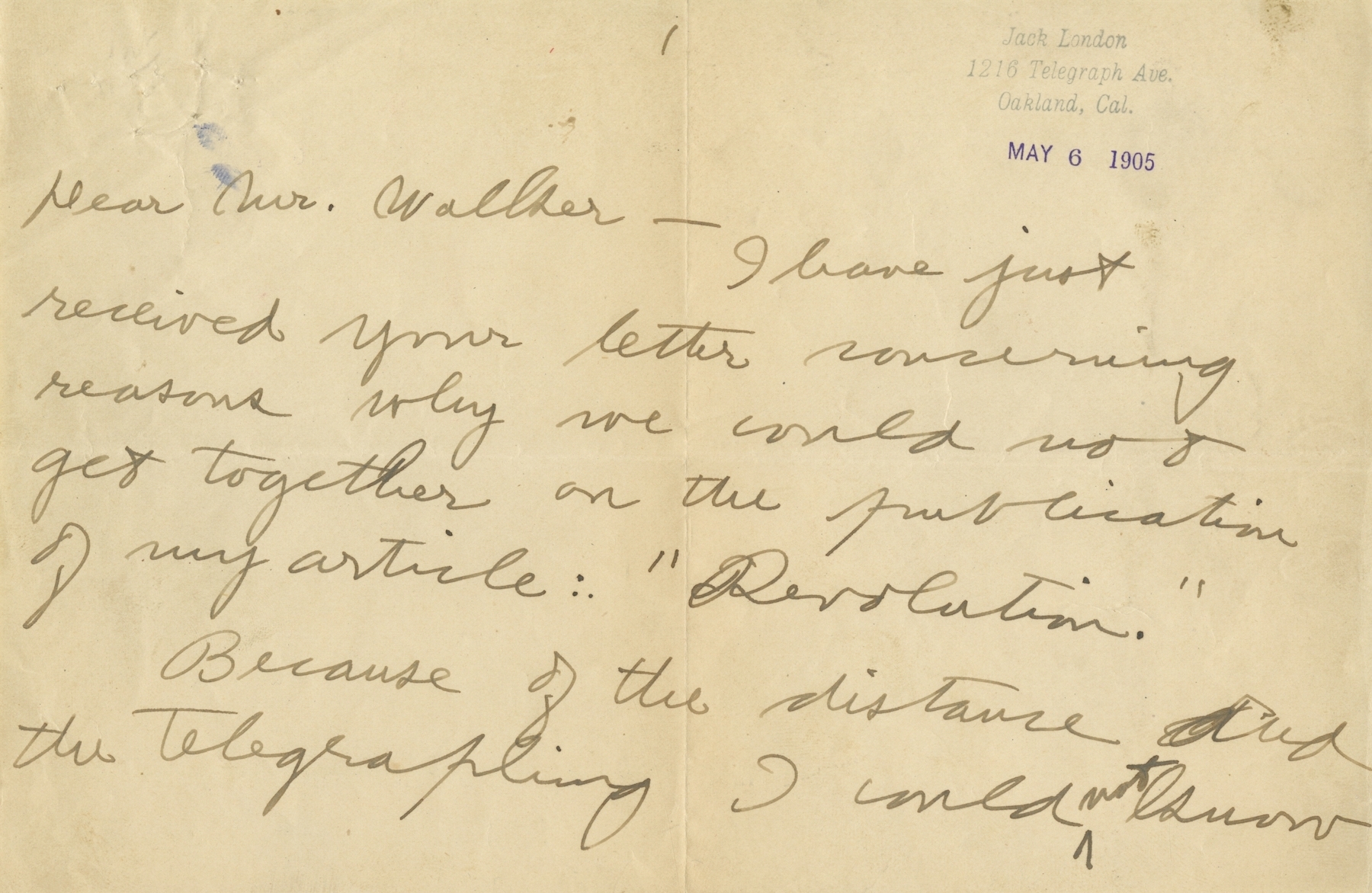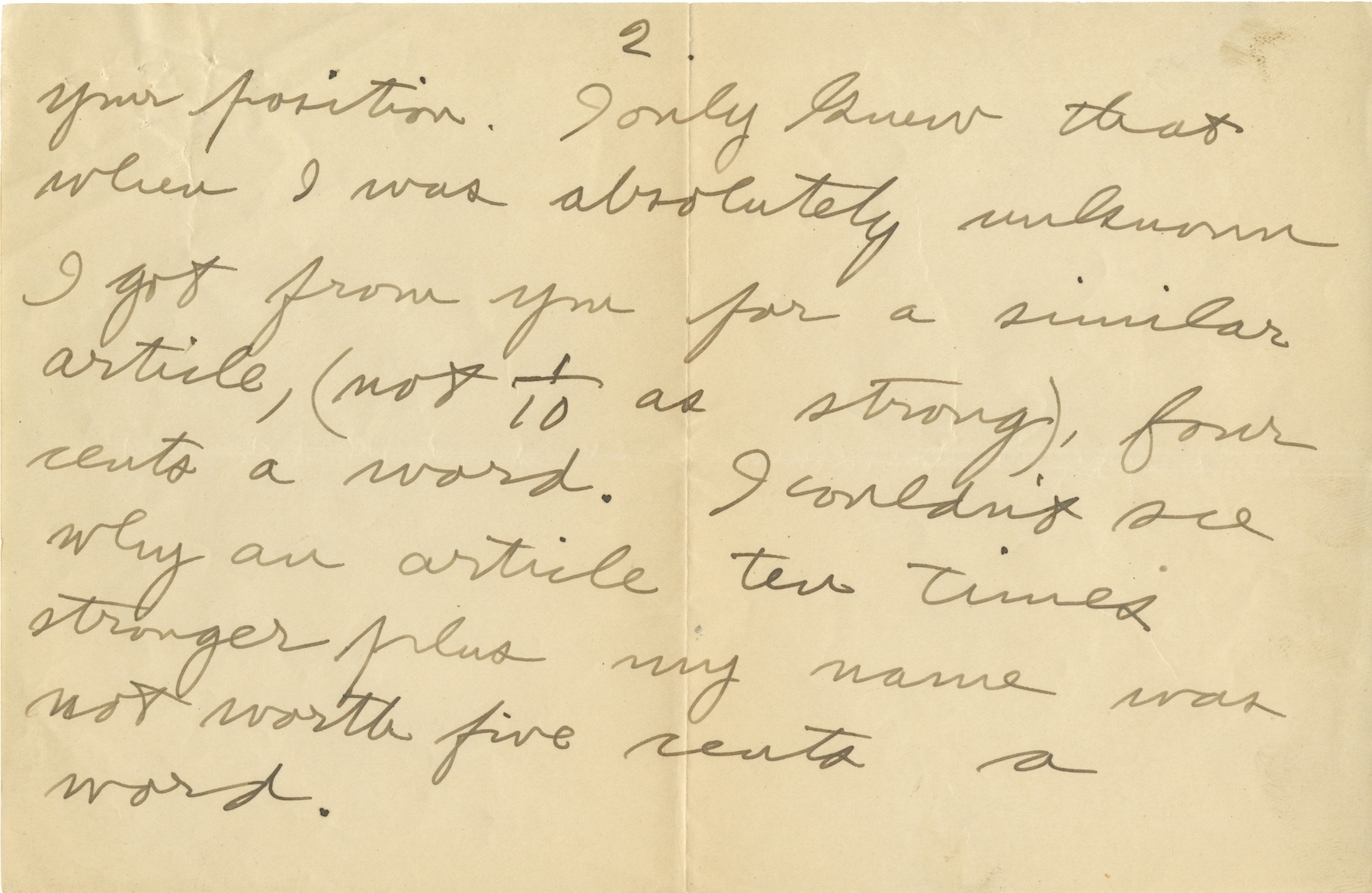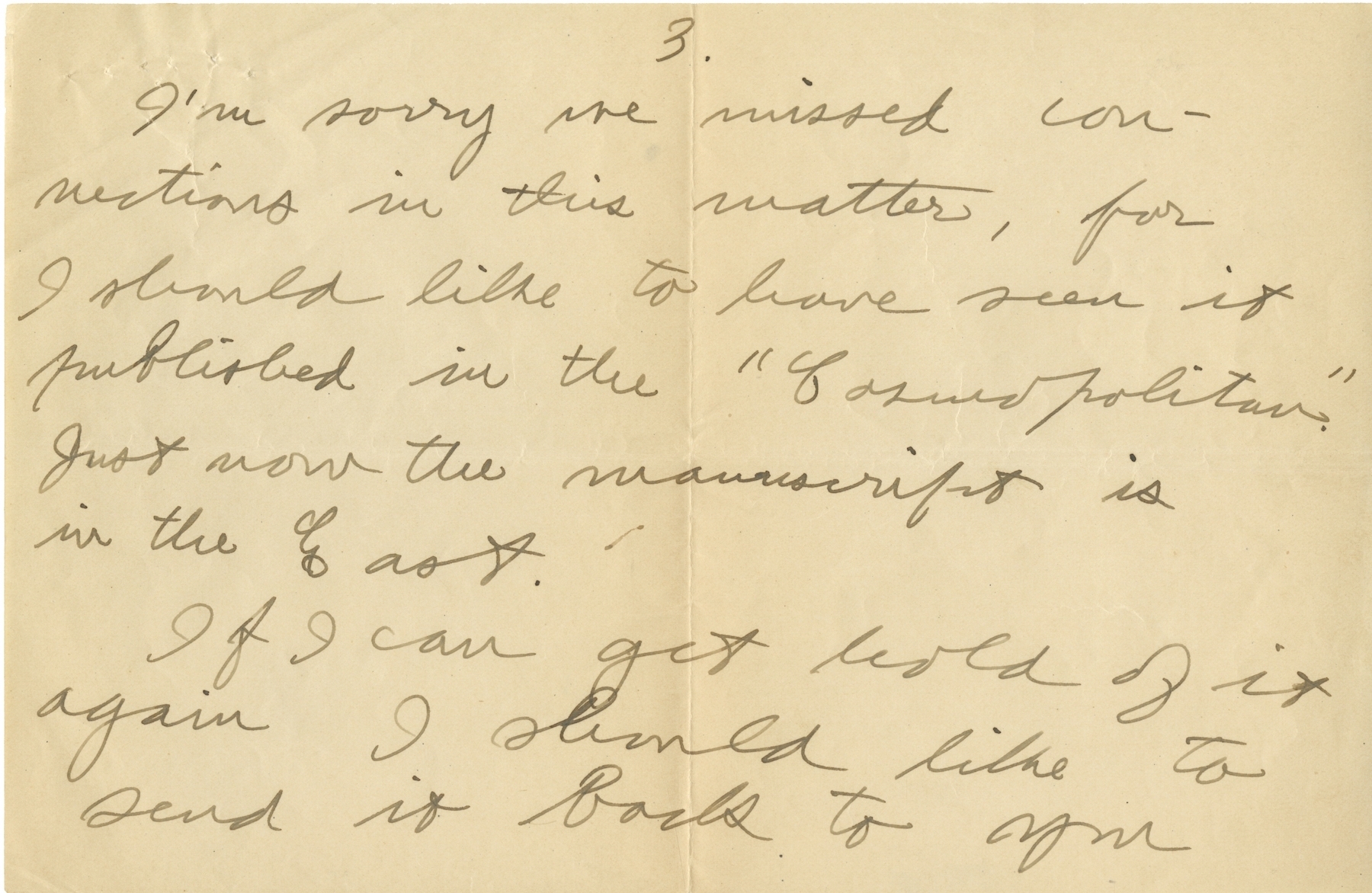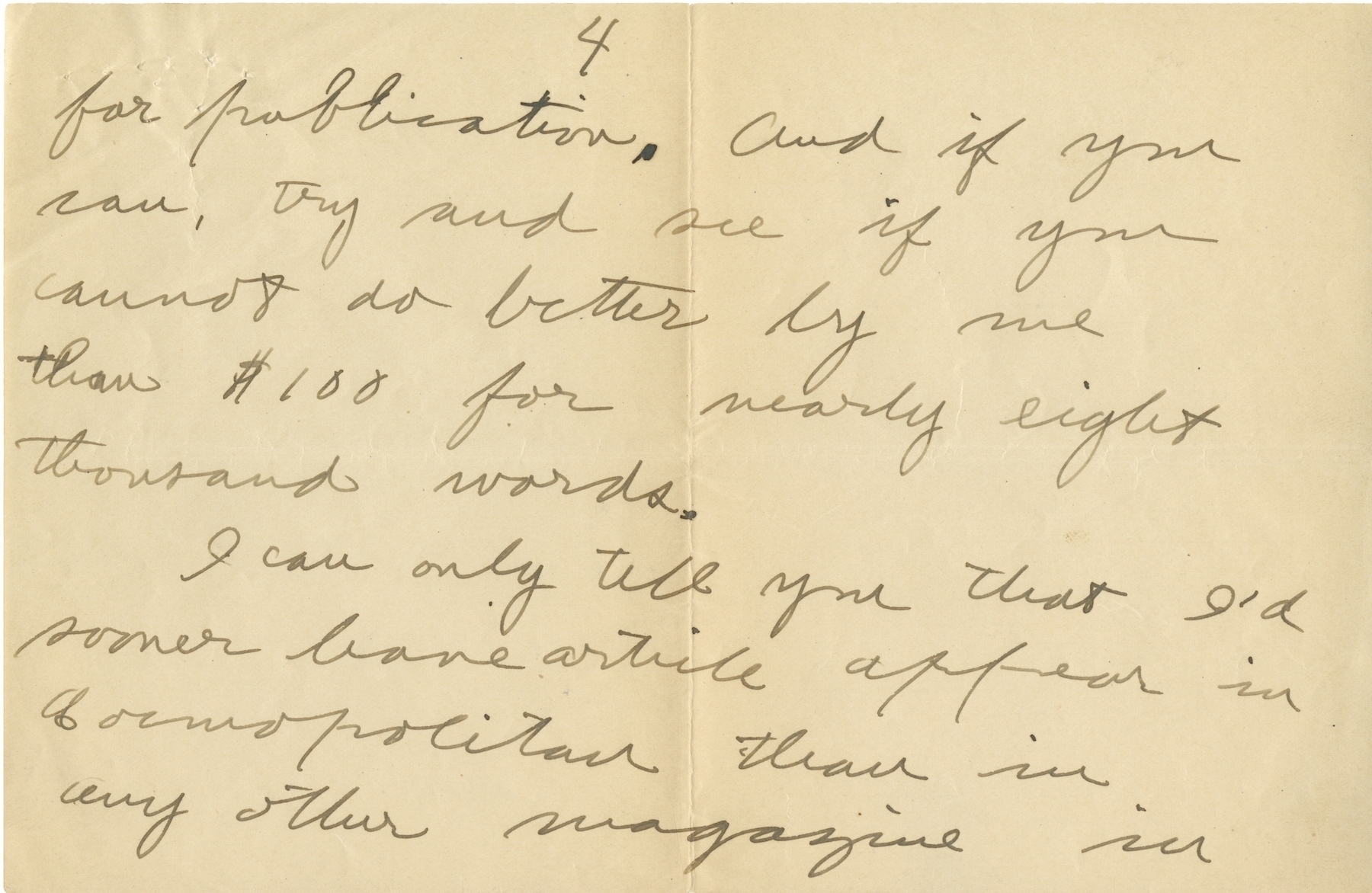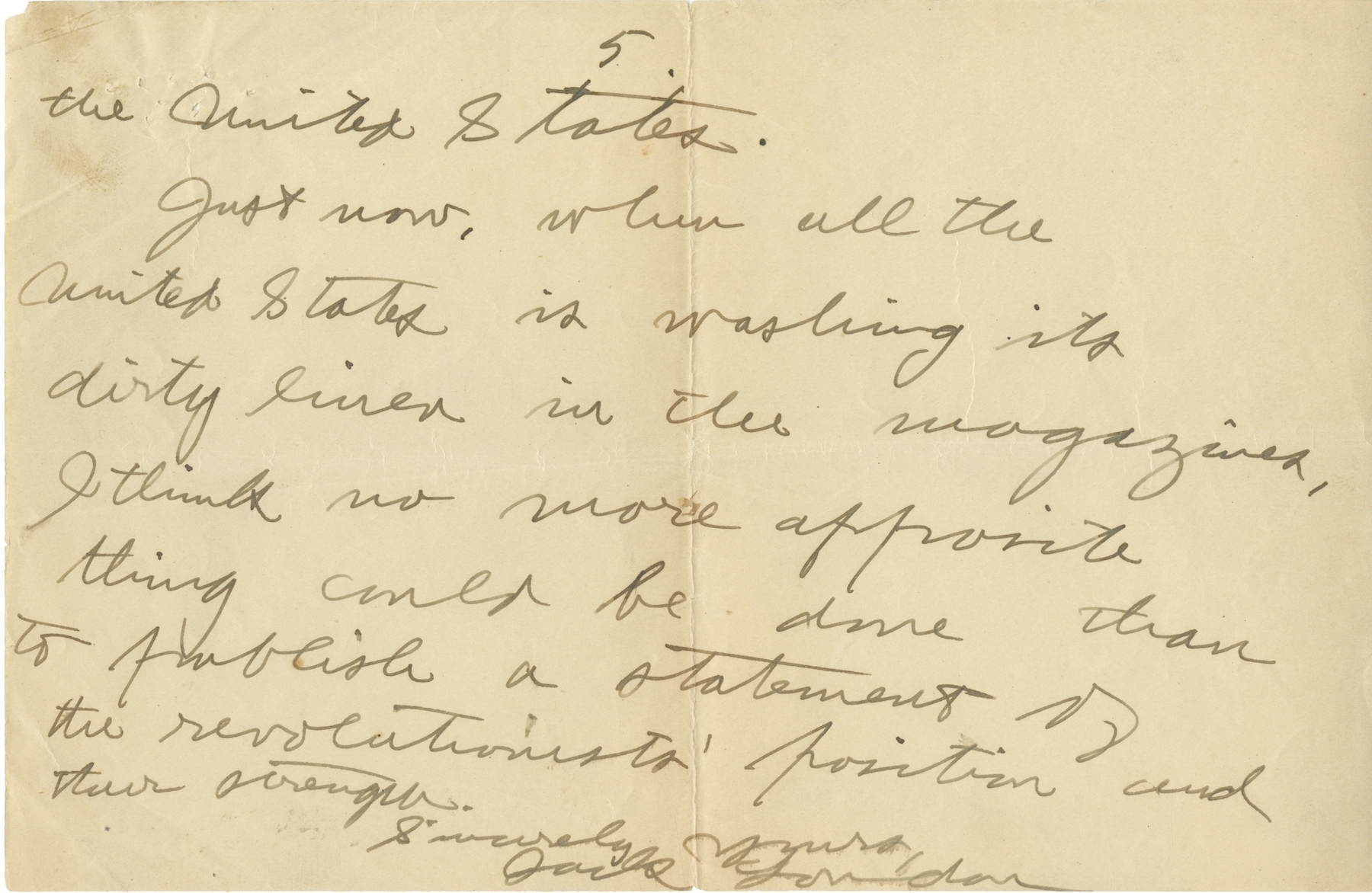Jack LONDON (1876-1916), American writer.
Signed autograph letter addressed to Mr. Walker.
Five oblong octavo pages, in English, on paper addressed to him.
Dated by stamp: May 6, 1905.
_______________________________
London wishes to publish an article entitled Revolution in the magazine Cosmopolitan , then edited by John Brisben Walker, but under satisfactory financial conditions.
He regrets that the distance between them and the difficulties of communication did not allow them to get along, recalling that when he was completely unknown, he had obtained from Walker 4 cents for a word. He has difficulty understanding that now that he has gained some fame, he is only paid 5 cents per word, while this article is ten times stronger than the first. However, he would prefer to see his text published in Cosmopolitan rather than in any other American magazine: …“ Just now, when all the United States is washing its dirty linen in the magazines, I think no more apposite thing could be done than to publish a statement of the revolutionist's position and their strength” … […Right now, while the whole of the United States is washing its dirty linen in the magazines, I think nothing more relevant could be done than to publish a declaration on the position of the revolutionaries and their strength…]
A few weeks after the 1905 Revolution in Russia, Jack London loudly proclaimed in this article that the socialist revolution was underway, that no one could stop it, neither President Roosevelt nor blind conservatives. There is in the world an army of 7 million revolutionaries, an army of workers with strong and powerful hands, loving peace but ready for war, who will know how to bring about the fall of capitalism and combat social poverty and its ravages.
We enclose a signed letter, addressed to a socialist comrade. Grand Forks (North Dakota), February 3, 1906. One octavo page on Dacotah Hotel letterhead, date by ink stamp. In English.
Written by his second wife, Charmian Kittredge (whom Jack London married in November 1905 and who was an ideal companion and faithful stenographer of his writings), this letter is intended to reassure his dear comrade Moore about the integrity of Cosmopolite magazine. …“ I was rushed to death when I wrote my replies to the questions published in Cosmopolitan. (…) M. Walker does not own the Cosmopolitan any more. It is owned by Mr Hearst. Read article by me entitled 'My Outlook on Life', soon to be published in Cosmopolitan and you will see that the magazine is all right. Yours for the revolution ” [I was in an absolute emergency when I wrote my responses to the questions published by Cosmopolitan. (…) Mr. Walker no longer owns the Cosmopolitan. It is owned by Mr. Hearst. Read my article, What Life Means to Me , soon to be published in Cosmopolitan, and you'll see that the magazine is exactly correct. Yours for the revolution]
Family magazine founded in 1886, Cosmopolitan was directed from 1889 by John Brisben Walker, from the automobile industry, before being bought in 1905 by William Randolph Hearst (who would later inspire Orson Wells for his famous film Citizen Kane ) . Under the direction of these two press bosses, the newspaper followed a more literary and political line before transforming in the 1950s into a more specifically “feminine” magazine. Among the magazine's contributors during Jack London's time, we can notably cite other great writers such as Ambrose Bierce, Rudyard Kipling, Edith Wharton and George Bernard Shaw.
In March 1906, Cosmopolitan actually published an autobiographical article by Jack London, under the title What life means to me . This article, as well as the one mentioned in the first letter, was collected in 1910 in a volume entitled Revolution (published in French by Editions Phébus in 2008). London explains how, through his birth in a disadvantaged environment and through his multiple experiences and encounters, he became a socialist activist, a fervent defender of the working class in the face of capitalist greed.
The final formula “ Yours for the revolution ” used in this letter was often used by London, a convinced socialist, in his correspondence.

